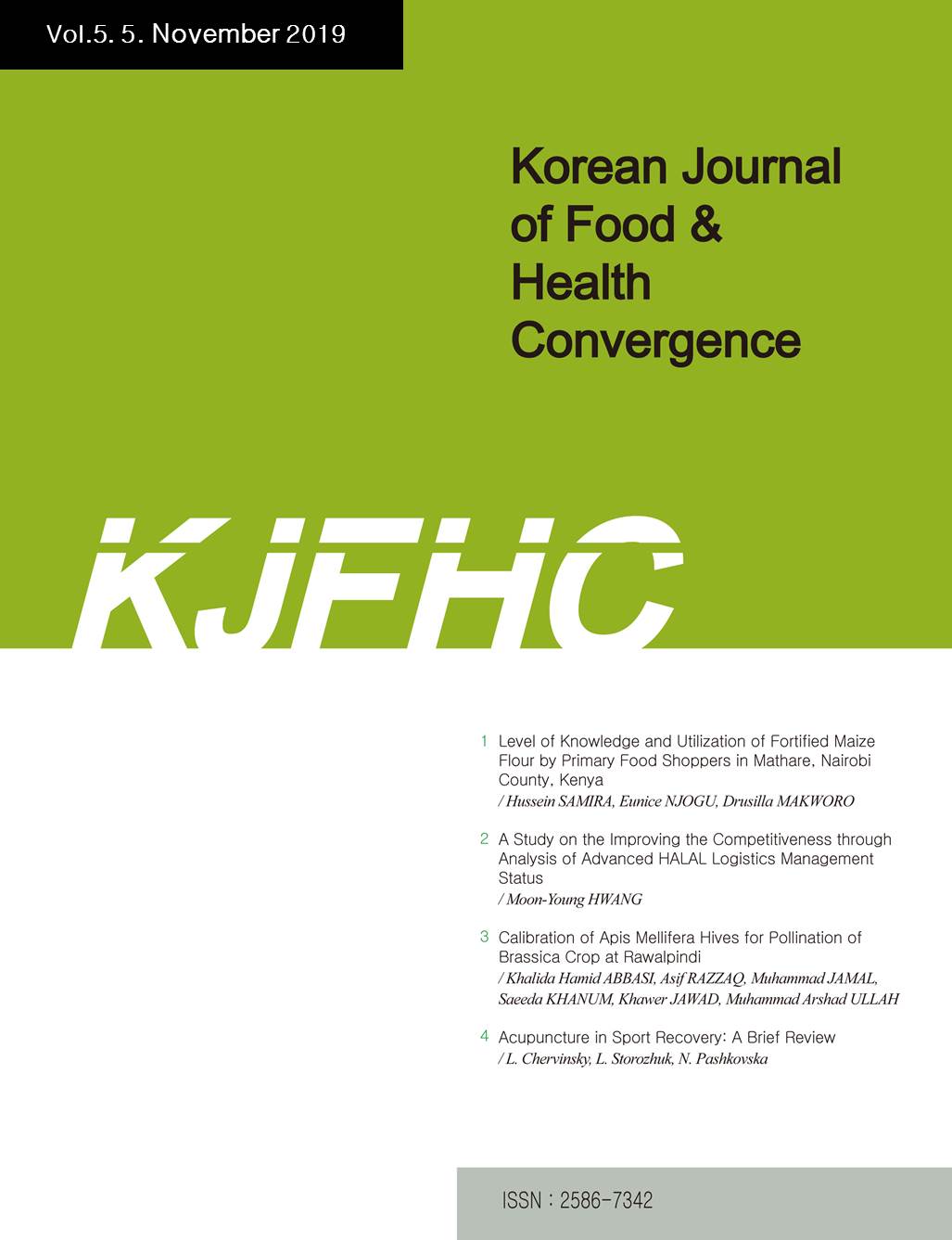- 권한신청
- E-ISSN2586-7342
- KCI
7권 4호
초록
Abstract
The purpose of this study is to investigate the ramen selection attributes of consumers. This research assigned taste, price, quantity, design, and brand as selection attributes, all of which have already been verified by previous studies as selection attributes when purchasing processed foods. A total of 500 questionnaires were issued, and the survey results were analysed to ensure validity and reliability. A Structural Equation Model was used to test the hypotheses of the study. Based on the analysis, taste, price, quantity, design, and brand had a statistically significant effect on satisfaction. Furthermore, satisfaction had a statistically significant effect on repurchase intention. Among the selection attributes (taste, price, quantity, design, and brand), only price had a statistically significant effect on repurchase intention. However, the influence of the selection attributes on satisfaction varied depending on the consumer's consumption value. In order to analyse the moderating effect of consumption value, the respondent group was divided into a hedonism group and pragmatism group, and analysed. It empirically proved that the hedonistic value-oriented group valued taste, and the practical value-oriented group valued price the most. This study empirically verified the relationship between ramen selection attributes and consumption value, and provided corresponding theoretical and practical implications.
초록
Abstract
The goal of this study was to quantify the content of heavy metals (Zn, Cu, Cd, Pb, Hg) in the bivalve Mytilus galloprovincialis, which was obtained from the Black Sea's Sinop peninsula, as well as estimate the health risks. Concentrations of heavy metals in mussels' soft tissues ranged between 16.4-21.8, 0.52-0.93, 0.13-0.45; 0.015-0.019 and 0.006-0.011mg kg<sup>-1</sup> wet weight for Zn, Cu, Pb, Hg and Cd, respectively. In general, metal concentrations in mussels were quite low. In mussels, Zn was the most prevalent element, followed by Cu. Regarding the monthly variation, although relatively higher tissue metal concentrations were observed in August compared to July, no statistical difference was found. The estimated daily intakes did not exceed the tolerable intakes. There was no health risk since the total hazard index was far below critical value 1. This demonstrates that eating mussels from the Sinop coasts in 2019 does not cause any health risks in infants, children, or adult. Mussels have a risk index of less than 10<sup>-6</sup>, which is considered insignificant. In conclusion, the results of this study show that there is no heavy metal pollution in the mussels collected from Sinop coasts.
초록
Abstract
This study analyzes the physiological changes that occur after free diving and studies peroxidants and antioxidants according to the recovery method. Accordingly, the purpose of this study is to provide proper rest methods after free diving and provide basic data for free diving research. Eight male college students recovered for 30 minutes after 20 free injections at a 5-meter diving site, 20 free injections after a week's car wash, and recovered for 30 minutes after collecting blood during recovery to analyze the effects of peroxidants and antioxidants. Comparison of changes in peroxidants and antioxidants in recovery methods after free-diving iterations showed that SOD tended to decrease immediately after free-diving, increasing MDA to 10 minutes after recovery, but no significant difference was found. The purpose of this study is to observe physiological changes according to the recovery method after free diving and to propose an appropriate recovery method after free diving. However, there was no significant difference in all the restoration methods, and 20 freediving was not high kinetic intensity for the subjects, which is believed to have resulted in the following results. Therefore, it was discussed that the repetitive diving strength should be higher to confirm a significant difference in the recovery method after free diving.
초록
Abstract
This study conducted 8 weeks of foam roller & mobility, core, and weight training for 9 middle school soccer players 5 times a week for 90 minutes to determine the effect on changes in body composition, thigh circumference, basic physical strength, and functional movement. To analyze the data according to the results of this study, SPSS 25.0 statistical program was used for analysis, and the mean (M) and standard deviation (SD) were calculated to present the descriptive statistics of all dependent variables. In addition, to analyze the difference between before and after exercise, it was verified using a paired t test. The statistical significance level (α) in all reasoning statistics was set to less than 5%. As a result, there were no significant changes in body composition and thigh circumference through 8 weeks of training. However, there were significant changes in agility and muscular endurance, and the total score for functional movement changes was significantly increased, and statistically significant changes were observed in three variables. Therefore, complex training is effective in changing the physical strength and functional movement of middle school soccer players, and further research will be required for a control group and various complex exercises.

